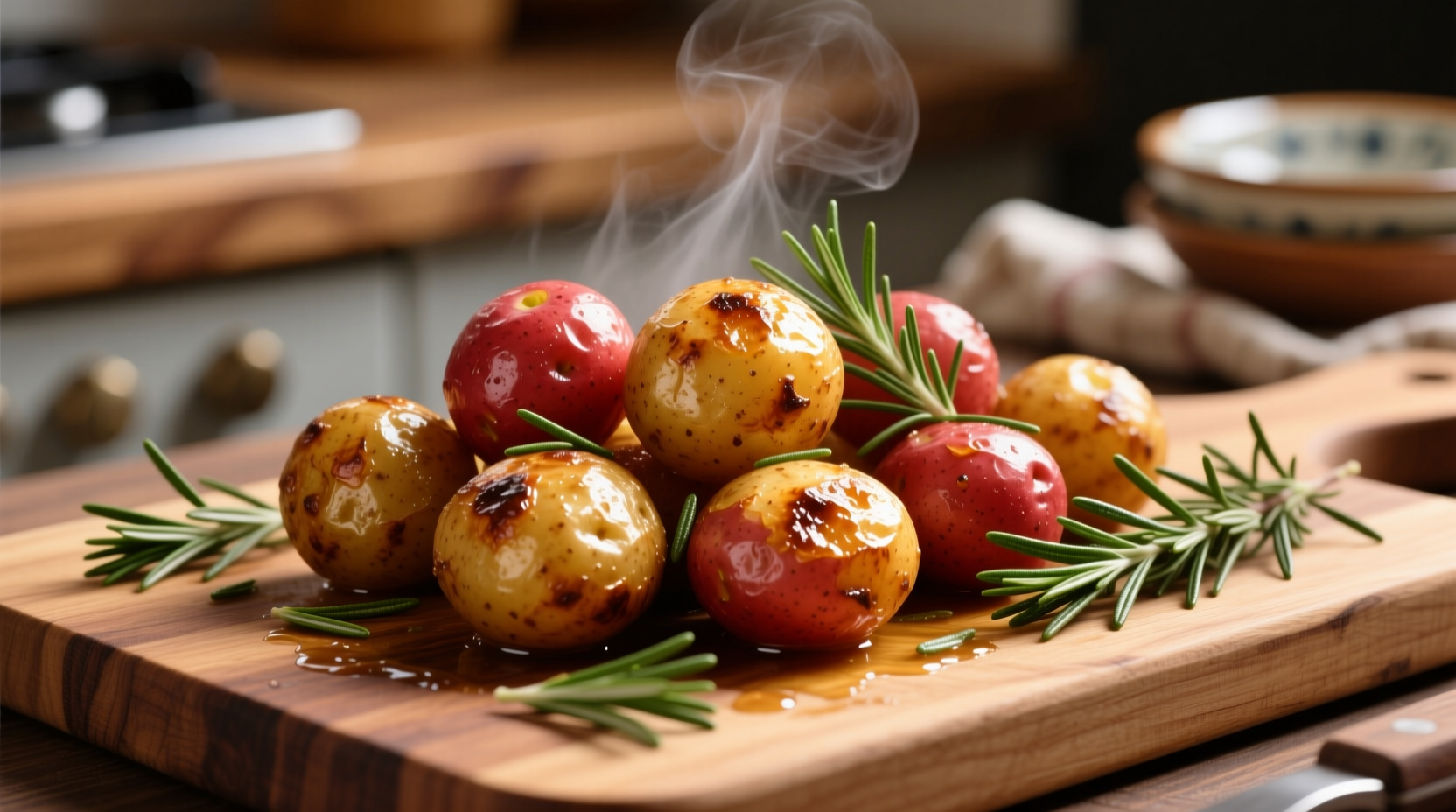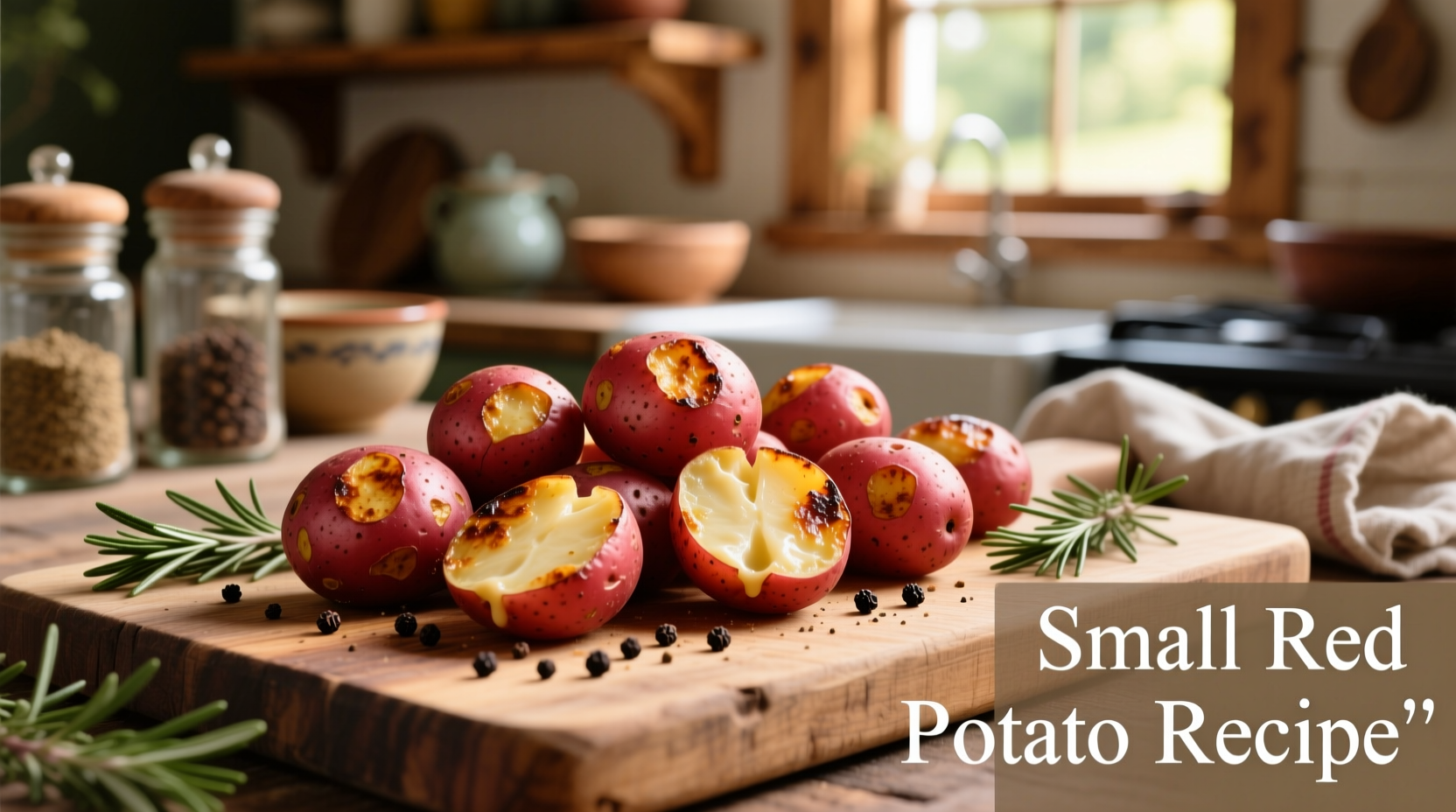Small red potatoes aren't just another side dish—they're culinary workhorses that deliver consistent results across cooking methods. Unlike starchy russets that fall apart when boiled, these thin-skinned gems hold their shape while developing a buttery interior. The USDA National Nutrient Database confirms they provide 26% of your daily vitamin C in a single serving, plus potassium and fiber that support heart health.
Why Small Red Potatoes Excel in Every Kitchen
Their naturally waxy composition (containing 16-18% dry matter compared to russets' 20-22%) creates the perfect balance for multiple cooking techniques. According to the University of Idaho's Potato Extension program, this lower starch content prevents disintegration during boiling while still allowing for crisp roasting when properly prepared.
| Potato Type | Best Cooking Methods | Texture Result |
|---|---|---|
| Small Red Potatoes | Boiling, roasting, salads | Firm yet creamy |
| Russet Potatoes | Baking, mashing | Fluffy |
| Yukon Gold | Mashing, soups | Buttery |
Perfect Roasted Small Red Potatoes: The Foolproof Method
Professional kitchens achieve that coveted crispy exterior through a two-step process you can replicate at home. First, parboil potatoes in salted water for 8 minutes until slightly tender. Drain thoroughly, then toss with olive oil, fresh rosemary, and a pinch of flaky sea salt. Spread in a single layer on a preheated baking sheet (425°F/220°C) for 35-40 minutes, flipping once halfway through.
Pro tip: The University of Minnesota Extension recommends adding 1 tablespoon of cornstarch to the oil mixture—this creates an extra-crispy crust without altering flavor. For meal prep success, roast potatoes in batches and store in airtight containers for up to 4 days.

3-Ingredient Small Red Potato Salad
Forget mayo-heavy versions—this light preparation showcases the potatoes' natural flavor. After boiling 2 pounds of halved small red potatoes until fork-tender, toss while warm with 3 tablespoons of apple cider vinegar and 2 tablespoons of extra virgin olive oil. Season with salt and freshly cracked pepper, then fold in 1/4 cup chopped fresh dill. The vinegar penetrates the warm potatoes, creating superior flavor absorption compared to chilled preparations.
Sheet Pan Dinner Solutions
Small red potatoes shine in one-pan meals where their density matches cooking times with proteins. Try this chef-approved combination: toss 1.5 pounds quartered potatoes with 12 oz chicken thighs, 1 red onion cut into wedges, and 2 cups cherry tomatoes. Season with smoked paprika, garlic powder, and thyme. Roast at 400°F (200°C) for 35-40 minutes until potatoes are golden and chicken reaches 165°F internally.
Storage Secrets for Maximum Freshness
Unlike russets, small red potatoes shouldn't be refrigerated—the cold converts starch to sugar, creating off-flavors when cooked. The Potato Sustainability Alliance recommends storing them in a cool, dark place (50-60°F/10-15°C) in a paper bag with ventilation holes. Properly stored, they'll maintain quality for 2-3 weeks. Never wash potatoes before storage—moisture accelerates spoilage.
Cooking Time Reference Guide
Timing varies significantly based on preparation method. These guidelines from the American Culinary Federation ensure perfect results every time:
- Boiling (whole): 15-20 minutes until fork-tender
- Boiling (quartered): 10-12 minutes
- Roasting (425°F): 35-45 minutes for crisp exterior
- Grilling (foil packet): 25-30 minutes over medium heat
- Air frying: 15-18 minutes at 400°F with single-layer arrangement
Common Mistakes to Avoid
Even experienced cooks make these errors with small red potatoes:
- Peeling them: The thin skin contains valuable nutrients and texture—leave it on!
- Overcrowding the pan: Creates steam instead of crispness during roasting
- Adding salt too early: When boiling, add salt after water reaches boil to prevent skin splitting
- Using cold potatoes in salads: Dress while warm for optimal flavor absorption
Seasonal Recipe Adaptations
Small red potatoes work year-round with simple seasonal adjustments:
- Spring: Toss with lemon zest, fresh peas, and mint
- Summer: Combine with grilled corn, cherry tomatoes, and basil
- Fall: Roast with sage, apples, and walnuts
- Winter: Simmer in broth with root vegetables for hearty stew











 浙公网安备
33010002000092号
浙公网安备
33010002000092号 浙B2-20120091-4
浙B2-20120091-4